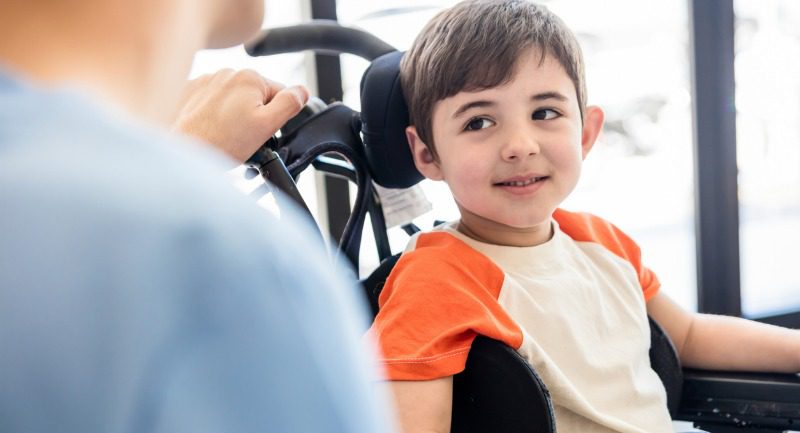Development and piloting of a children’s disability toolkit

SCRA has published a new research report today (Wednesday 29 September) following the development, then pilot of a disability toolkit for children.
The toolkit is the first of its kind in the Children’s Hearings System.
SCRA was approached by the Disabled Children Child Protection Network (DCCPN) to develop and pilot a toolkit that would:
1) allow for the identification of additional needs that could have substantial and long term impacts upon a child’s ability to carry out normal day to day activities.
2) provide an indicator of wider vulnerability and contextual factors that were pertinent to understanding child protection risk.
The developed toolkit included measures of: adverse experiences in the perinatal period and early infancy; childhood trauma; socioeconomic circumstances; social isolation and victimisation; ability to participate in education and social activities; common childhood disabilities and illness; and functioning across a range of ‘normal’ activities such as emotional regulation, peer interactions and difficulties with routine day-to-day activities such as self-care.
To pilot the toolkit, our researchers examined the case files of 40 children who had been subject to Compulsory Supervision Orders (CSOs) with residential care conditions when they were aged 5-12 years-old. Half of the sample had been recorded as having a disability within casefiles, while the remainder were not identified as having a disability. As part of their work, colleagues looked at data held by SCRA, for example reports from social work, police, education and health.
The findings revealed that the toolkit could robustly identify children who had been previously identified as having a disability, as well as recognising children who may have an undiagnosed disability, or have additional support needs relating to their learning, communication, socioemotional, mental health or physical wellbeing.
Dr Catherine Nixon, one of the researchers said: “The view from practitioners working with children is that official statistics on disability underestimates the number of children in Scotland who have additional support needs. The disability toolkit that we have developed facilitates easy identification of children who may require additional support either as a result of known disability or due to unrecognised or undiagnosed need.
“It is hoped that the toolkit can be used to facilitate access to supports and interventions designed to promote inclusion through earlier identification of need.”
Now the toolkit is available, SCRA will work with the DCCPN to explore the acceptability of using the disability toolkit within practice.
If you have any questions or comments about the research, please get in touch.
